Academics
"Warning, in music-words
devout and large,
that we are each other’s
harvest:
we are each other’s
business:
we are each other’s
magnitude and bond."
Gwendolyn Brooks, 1971

"Warning, in music-words
devout and large,
that we are each other’s
harvest:
we are each other’s
business:
we are each other’s
magnitude and bond."
Gwendolyn Brooks, 1971

"The source of these problems of coordination and cooperation is not the nature of the individuals’ goals, or the instrumental character of rationality. Rather it is individualism about rationality, which holds the unit of activity exogenously fixed at the individual" Hurley, 2004
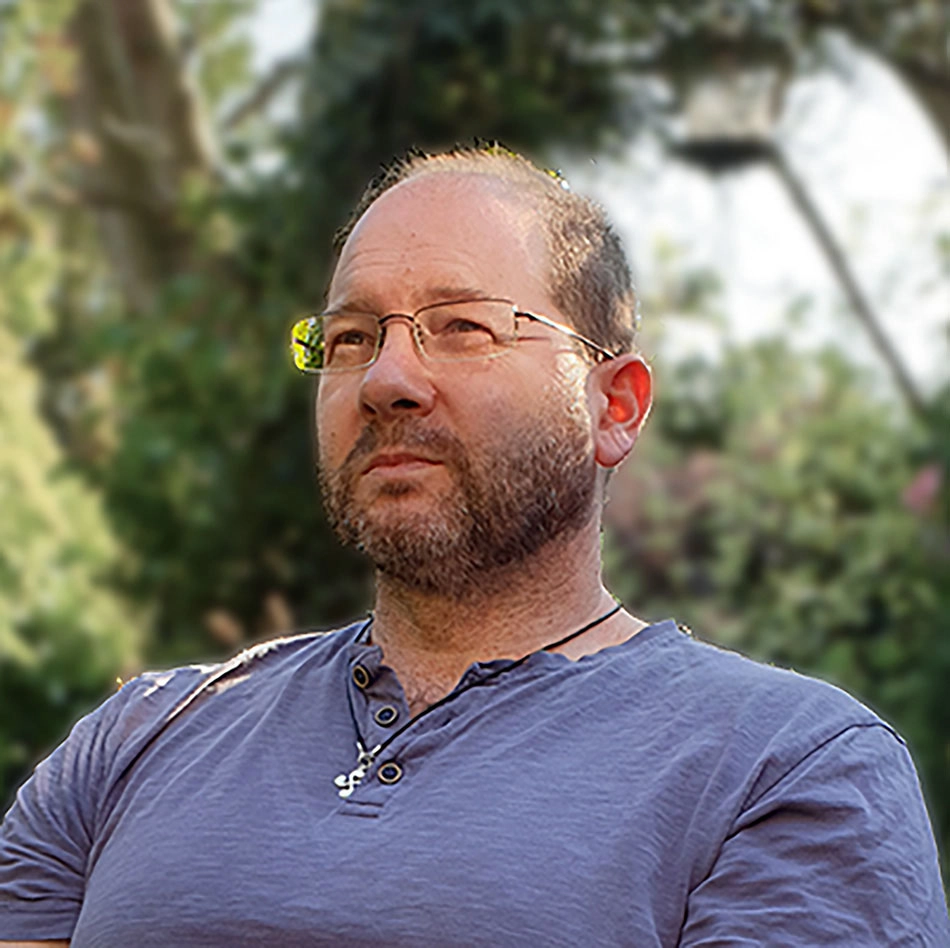 I am City St George's Professor in Artificial Intelligence and the Director of the Artificial Intelligence Research Centre (CitAI) at the Department of Computer Science, City, University of London. I study relationships between reinforcement learning and optimization techniques, associative learning, and evolutionary models of aposematism and foraging. I have a keen interest in exploring variational principles and symmetries in learning and behaviour.
I am City St George's Professor in Artificial Intelligence and the Director of the Artificial Intelligence Research Centre (CitAI) at the Department of Computer Science, City, University of London. I study relationships between reinforcement learning and optimization techniques, associative learning, and evolutionary models of aposematism and foraging. I have a keen interest in exploring variational principles and symmetries in learning and behaviour.
More generally, I am interested in applications of AI technology to real-life problems, such as solutions for energy, health, and biochemistry, and in the ethical and legal impact of deep learning, and in investigating whether AI algorithms can produce creative art.
I have published dozens of papers in journals like Neural Computation, Neural Networks, IEEE TNN&LS, and have contributed to The Cambridge Handbook of Artificial Intelligence and several Springer's LNAI and LNCS volumes. My work has been spotlighted by the IEEE Computational Intelligence Society as one of the most important contributions in the area in 2013, and was awarded the First Prize of the European Institute of Innovation and Technology ICT 2014.
I have acted as vice-chair of The Society for the Study of Artificial Intelligence and the Simulation of Behaviour (AISB), the eldest learned Artificial Intelligence society, and am a member of the EPSRC College.
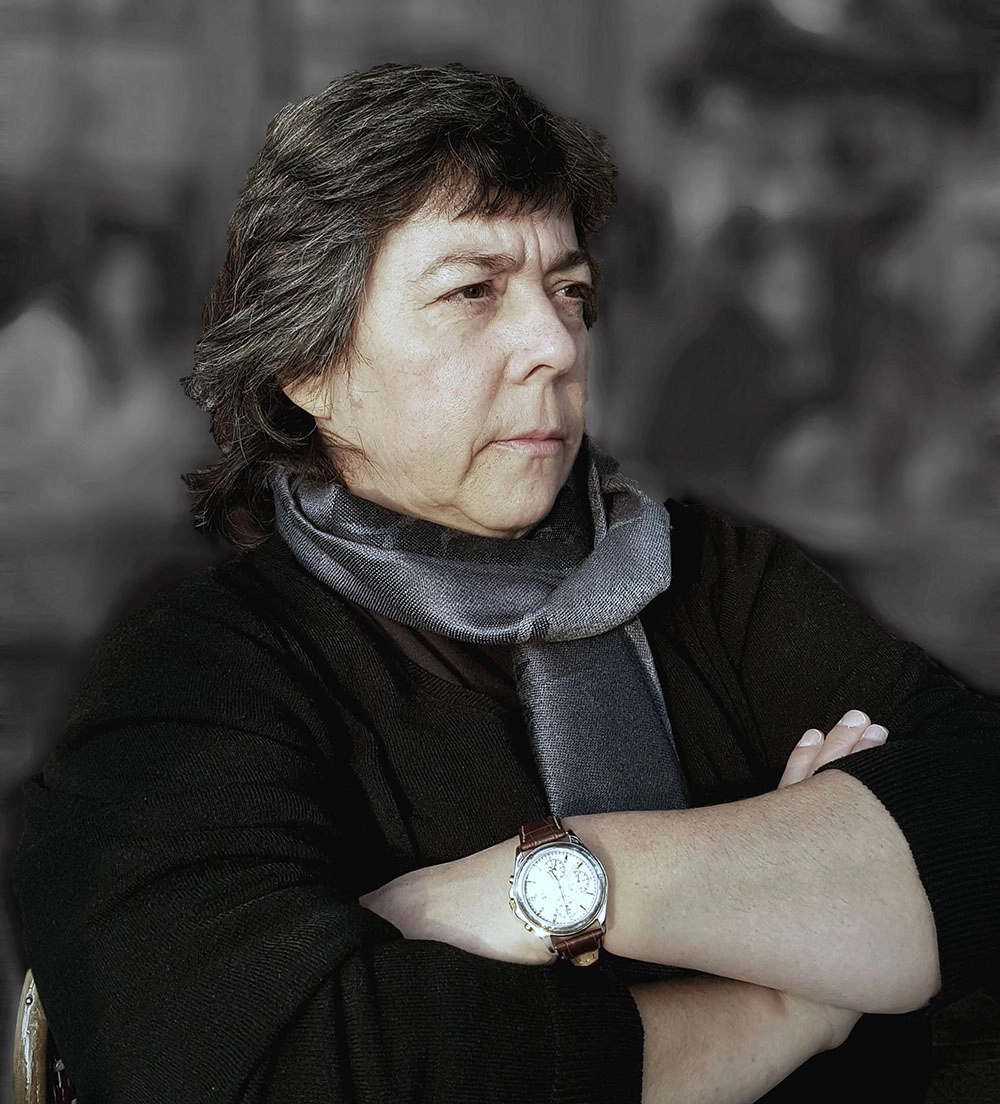 I am a computational cognitive neuroscientist working in nature-inspired AI and the Director of the MSc in Artificial Intelligence. My main research focusses on modelling associative learning (AL), and in the conceptual and formal modifications in learning theory that would allow incorporating phenomena that at face value are not susceptible to associative analysis. I have developed several computational learning models such as the Double error Dynamic Asymptote (DDA) model, a fully-connected architecture for Pavlovian conditioning with a dynamic asymptote, which determines the direction of learning, and the Rescorla-Wagner Drift-Diffusion Model (RWDDM) that combines a noisy linear accumulator and the Rescorla-Wagner learning rule.
I am a computational cognitive neuroscientist working in nature-inspired AI and the Director of the MSc in Artificial Intelligence. My main research focusses on modelling associative learning (AL), and in the conceptual and formal modifications in learning theory that would allow incorporating phenomena that at face value are not susceptible to associative analysis. I have developed several computational learning models such as the Double error Dynamic Asymptote (DDA) model, a fully-connected architecture for Pavlovian conditioning with a dynamic asymptote, which determines the direction of learning, and the Rescorla-Wagner Drift-Diffusion Model (RWDDM) that combines a noisy linear accumulator and the Rescorla-Wagner learning rule.
My current research centres on integrating deep learning architectures and associative learning to explore the possible contribution of associative processes to the formation of representational hierarchies, as a first necessary step towards scaling up to higher-order cognition. AL is core to bottom-up approaches to natural intelligence and thus keystone to the development of AI algorithms and architectures meant to simulate human-like behaviour.
I have published in presetigious journals such as Psychological Review, Trends in Cognitive Science, PloS Computational Biology, and Science.
I am a senior member of The Society for the Study of Artificial Intelligence and the Simulation of Behaviour (AISB)
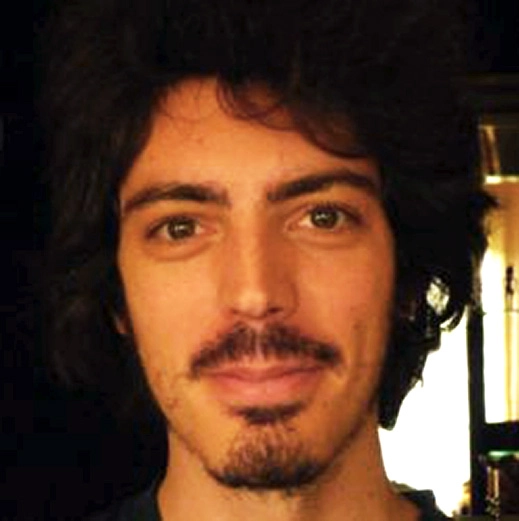 I am a lecturer in the Computer Science Department at City and a member of the Artificial Intelligence Research Centre (CitAI). Previously, I was a postdoctoral researcher at Harvard Medical School in the Neurobiology Lab of Dr. John Assad and a postdoctoral researcher at Italian Institute of Technology in the Neural Computation Lab of Dr. Stefano Panzeri. I obtained my PhD in Information and Communication Technologies, with specialization on data analysis for neuroscience, at the University Pompeu Fabra, Barcelona, under the supervision of Dr. Ralph G. Andrzejak.
I am a lecturer in the Computer Science Department at City and a member of the Artificial Intelligence Research Centre (CitAI). Previously, I was a postdoctoral researcher at Harvard Medical School in the Neurobiology Lab of Dr. John Assad and a postdoctoral researcher at Italian Institute of Technology in the Neural Computation Lab of Dr. Stefano Panzeri. I obtained my PhD in Information and Communication Technologies, with specialization on data analysis for neuroscience, at the University Pompeu Fabra, Barcelona, under the supervision of Dr. Ralph G. Andrzejak.
The core of my research has been the development of machine learning and statistical methods to infer the representation of informative features in high-dimensional data, and the application of these methods to understand how the brain represents and processes sensory stimuli and behavioral decisions in the activity of populations of neurons.
More broadly, I am mostly interested in understanding how the causal structure and generative mechanisms of complex systems can be learned from data and exploit it to create useful representations of high-dimensional data that are more robust and generalizable across domains, to better characterize complex real-life systems (e.g. neuroscience, genomics) and to improve data representations with causal inference methods also for technological applications.
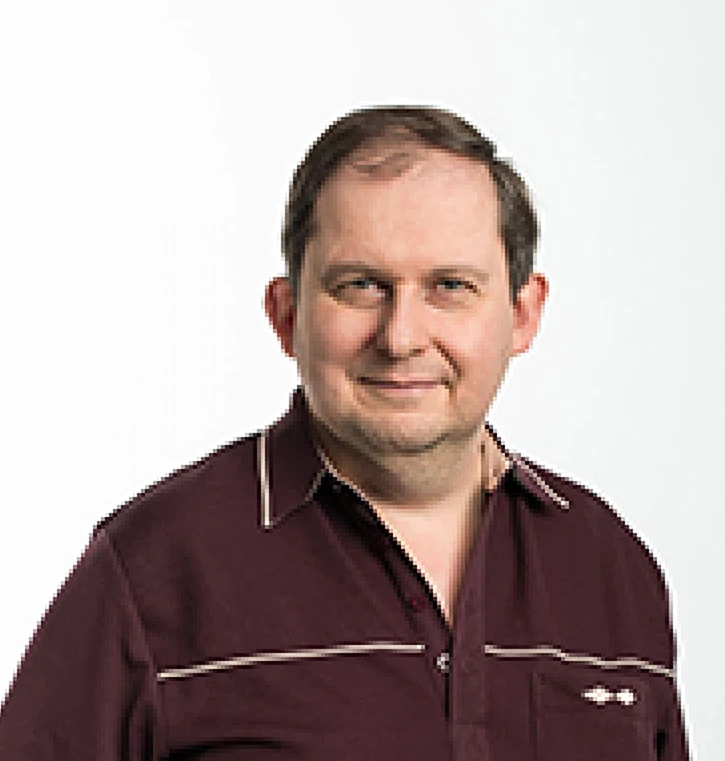 Andy is a Reader in Information Retrieval. He is also a member of the Centre for HCI Design at City St Georges’, University of London.
Andy is a Reader in Information Retrieval. He is also a member of the Centre for HCI Design at City St Georges’, University of London.
His research interests currently focus on a number of areas including disabilities and Information Retrieval (dyslexia and aphasia in particular), AI techniques for Information Retrieval and Filtering, and Image Retrieval together with application areas such as systematic reviews in healthcare & Journalism.
He was co-investigator of the DMINR project which looked at verification in Journalism, and the use of large language models to support information retrieval and discovery. He is a member of the BCS Information Retrieval Specialist Group and is a long standing member of that SG as well as a past chair.
Andy is a Fellow of the British Computer Society, a Fellow of the Higher Educational Academy, Charted Member of the British Computer Society (CITP) and a Chartered Engineer of the Engineering Council (CEng).
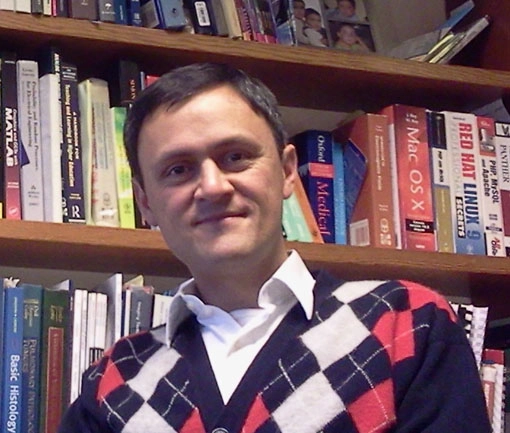 I am an interdisciplinary scientist with skills that span from microscopy to image analysis of biomedical data sets to advanced computer programming. I studied Mechanical and Electrical Engineering (BEng 5-years UNAM), Communications and Signal Processing (MSc Imperial College) and Computer Science (PhD Warwick). I also worked as a Postdoctoral Researcher and then Fellow in the Department of Surgical Oncology of The University of Sheffield where I gained hands-on experience with many imaging modalities such as Intravital, Fluorescence and Multispectral Microscopy, Computed Tomography and Magnetic Resonance Imaging.
I am an interdisciplinary scientist with skills that span from microscopy to image analysis of biomedical data sets to advanced computer programming. I studied Mechanical and Electrical Engineering (BEng 5-years UNAM), Communications and Signal Processing (MSc Imperial College) and Computer Science (PhD Warwick). I also worked as a Postdoctoral Researcher and then Fellow in the Department of Surgical Oncology of The University of Sheffield where I gained hands-on experience with many imaging modalities such as Intravital, Fluorescence and Multispectral Microscopy, Computed Tomography and Magnetic Resonance Imaging.
My research has focused mainly on biomedical areas related to Cancer, Microcirculation and Inflammation using a variety of techniques, from traditional to deep learning.
I have written many journal and conference papers, some with their corresponding code in GitHub and matlabcentral, and a book called “Biomedical Image Analysis Recipes in Matlab”, published by Wiley. I have organised several conferences (MIUA, BMVA, ECDP, Angionet), served in committees (BACR, MIUA, IET), reviewed for many journals and act as Editor (PLOS ONE, Oncology News) and Guest Editor (IET, Medical Image Analysis).
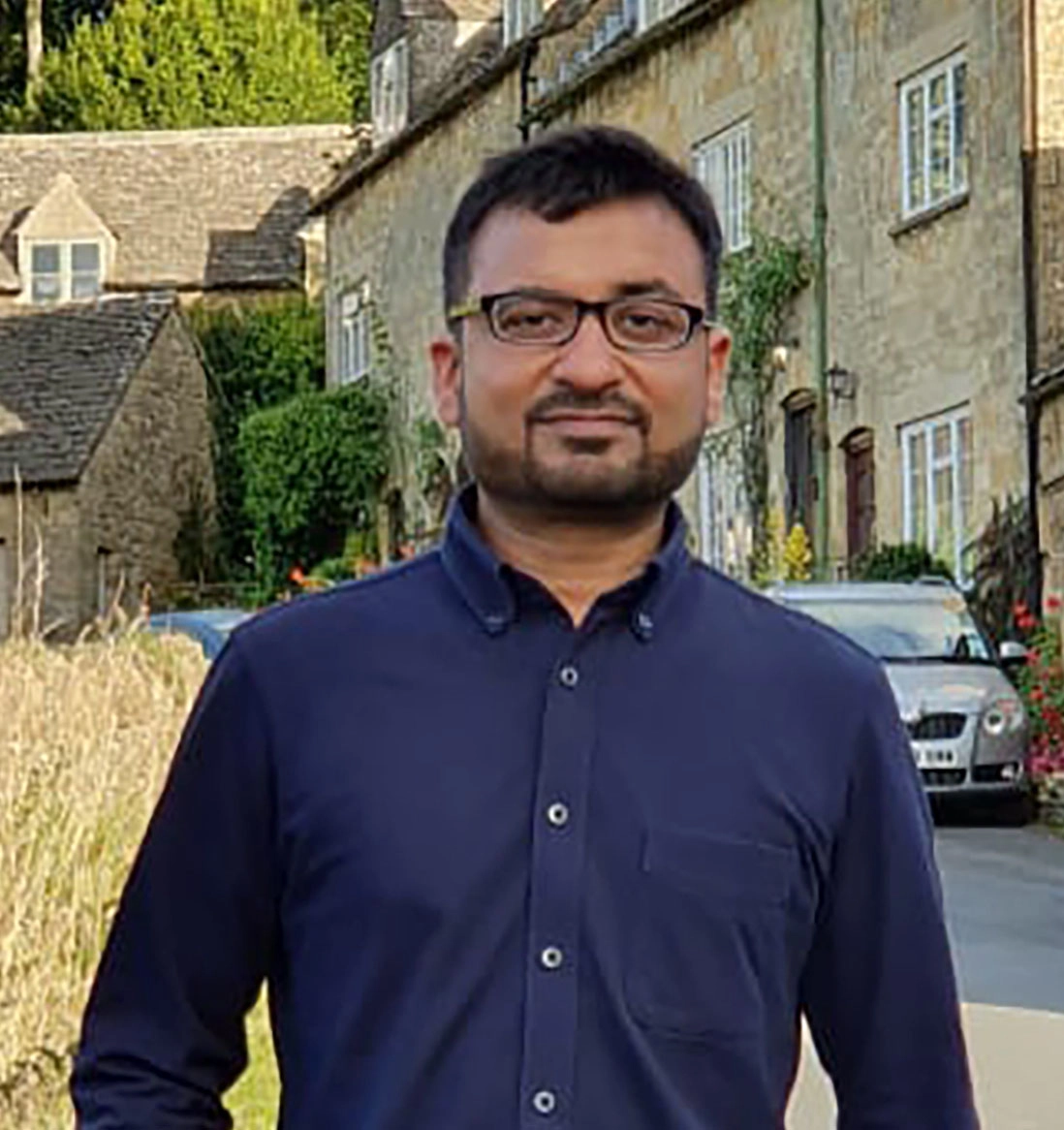 I am a lecturer in Computer Science at City, University of London and a member of CitAI. Currently, I am exploring deep learning models for the classification of Major Depressive Disorder with Eduardo Alonso and Esther Mondragón.
I am a lecturer in Computer Science at City, University of London and a member of CitAI. Currently, I am exploring deep learning models for the classification of Major Depressive Disorder with Eduardo Alonso and Esther Mondragón.
My Ph.D. topic was in the domain of Artificial Intelligence and neuroimaging under the supervision of Eduardo Alonso and Greg Slabaugh. I have explored different machine learning and deep learning methods for the diagnosis of Attention Deficit Hyperactive Disorder (ADHD) using functional MRI (fMRI) data. I am interested in exploring Artificial Intelligence in the domain of neuroimaging to better understand the most complex human organ –the brain, and to better diagnose brain disorders—using Deep learning algorithms and architectures such as Convolutional Neural Networks (CNNs), Long Short-Term Memory (LSTM), auto-encoders, and Generative Adversarial Networks (GANs).
I have published my research in a number of journal and conference papers such as Journal of Neuroscience Methods, Computerized Medical Imaging and Graphics, IEEE International Symposium on Biomedical Imaging (ISBI 2018), International Workshop on Connectomics in NeuroImaging (CNI 2017), and International Conference on Image Analysis and Recognition (ICIAR 2016).
Before joining the City St George's, University of London I completed a MSc at the National University of Sciences and Technology (NUST), Pakistan.
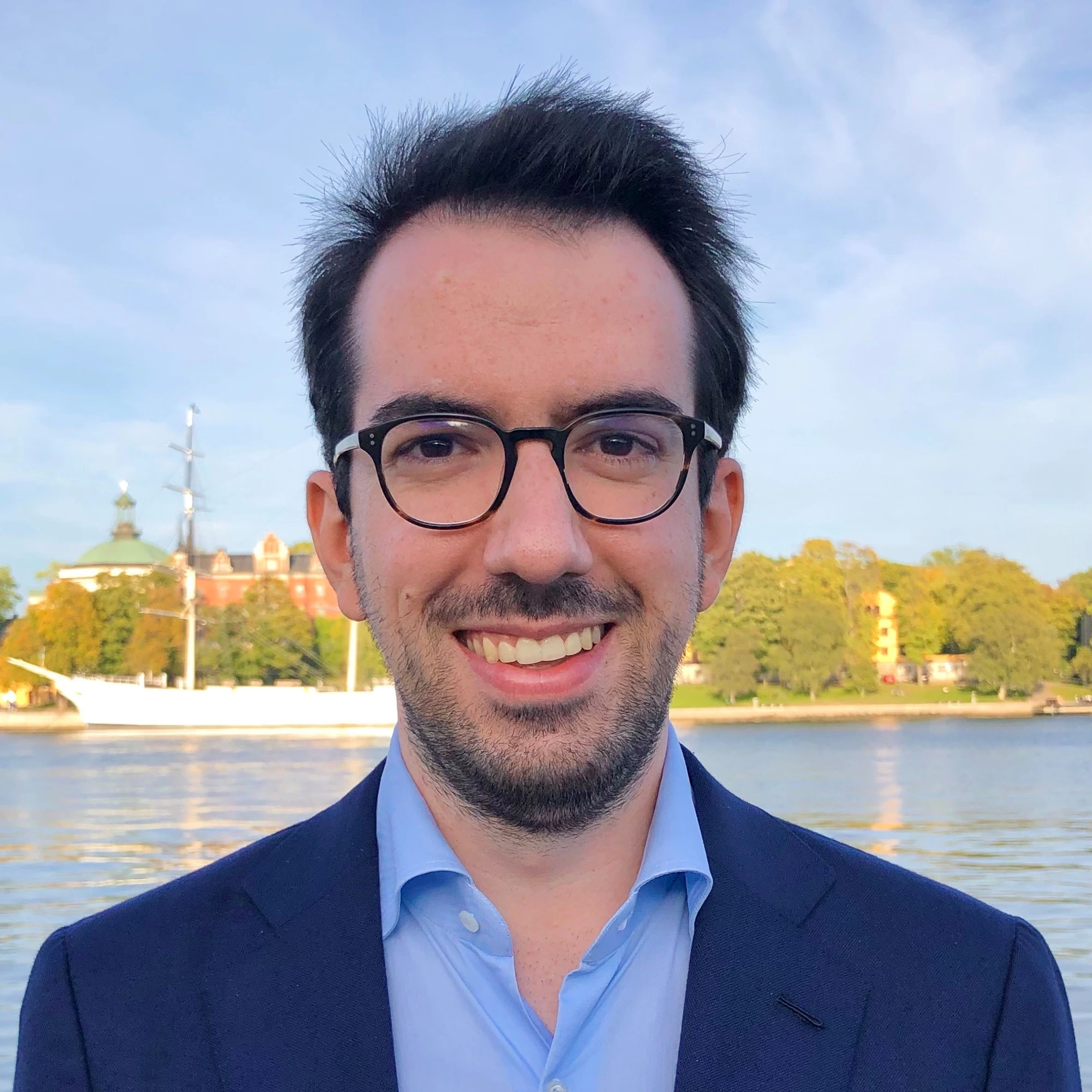 I am a Contract Researcher at the Institut d'Investigació en Intel·ligència Artificial (IIIA-CSIC) in Barcelona (Spain) and member of CitAI. My research interests are Multiagent Systems and AI Ethics. In particular, I am interested in Normative Multiagent Systems, Value alignment, Privacy, and applications of AI in policymaking (more specifically, participatory budgets).
I am a Contract Researcher at the Institut d'Investigació en Intel·ligència Artificial (IIIA-CSIC) in Barcelona (Spain) and member of CitAI. My research interests are Multiagent Systems and AI Ethics. In particular, I am interested in Normative Multiagent Systems, Value alignment, Privacy, and applications of AI in policymaking (more specifically, participatory budgets).
Previously, I was lecturer at City St George's, University of Londond and before that a postdoctoral researcher at King’s College London. My research there focused on finding ways to produce prescriptive norms to ensure smart assistants behave in a way aligned to what their users expect, for example, with regard to their privacy preferences.
I obtained my PhD from the University of Barcelona and the Institut d'Investigació en Intel·ligència Artificial (IIIA-CSIC). My PhD thesis explored value alignment in normative multiagent systems. It provided methods to compose sets of norms with the aim that the resulting enacted norms align with given moral values and value preferences. Agents following these norms will therefore act in a value-aligned way. My thesis received the best thesis award by the Catalan Association of Artificial Intelligence, and I have also received the Young Researcher award of the Spanish Scientific Society of Computer Science and the BBVA Foundation.
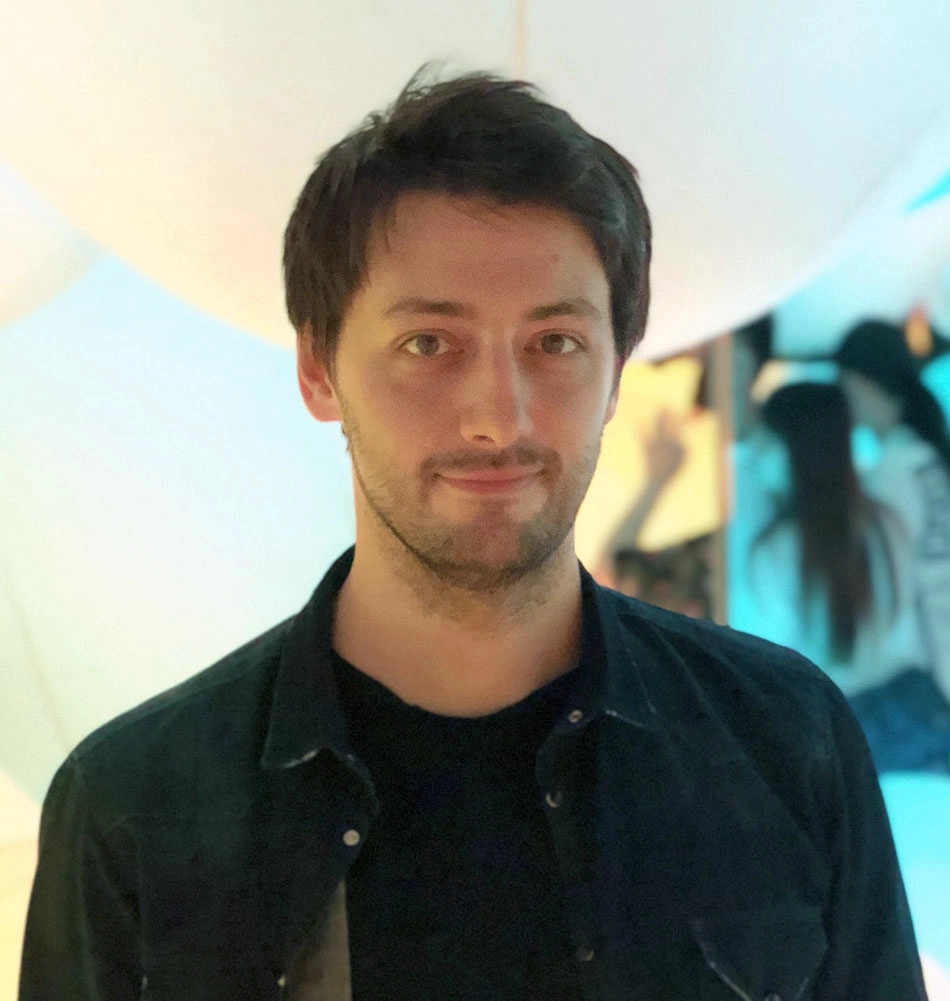 I have been a full-time researcher in the field of medical image analysis since 2009. My work has been mainly focused on image segmentation, image registration, quality control and object tracking for cardiovascular, brain and fetal images. In particular, I obtained my Ph.D. from the University of Bologna, Italy (in collaboration with the University of Chicago, U.S.) working on the automated analysis of first-pass myocardial perfusion sequences in MRI. During my post-doc at the University of Padova, Italy, I focused on the automated analysis of fetal ultrasound images.
I have been a full-time researcher in the field of medical image analysis since 2009. My work has been mainly focused on image segmentation, image registration, quality control and object tracking for cardiovascular, brain and fetal images. In particular, I obtained my Ph.D. from the University of Bologna, Italy (in collaboration with the University of Chicago, U.S.) working on the automated analysis of first-pass myocardial perfusion sequences in MRI. During my post-doc at the University of Padova, Italy, I focused on the automated analysis of fetal ultrasound images.
After being awarded a Marie Skłodowska-Curie Fellowship from the European Commission, I moved to Imperial College London, where I became interested in the applications of machine learning and AI to automated organ detection, quality control assessment and motion correction for cardiac MRI.
My current research focus is on machine learning for unsupervised anomaly detection, self-supervised approaches to image classification/segmentation and federated learning, both for medical image analysis and more generally for computer vision applications.
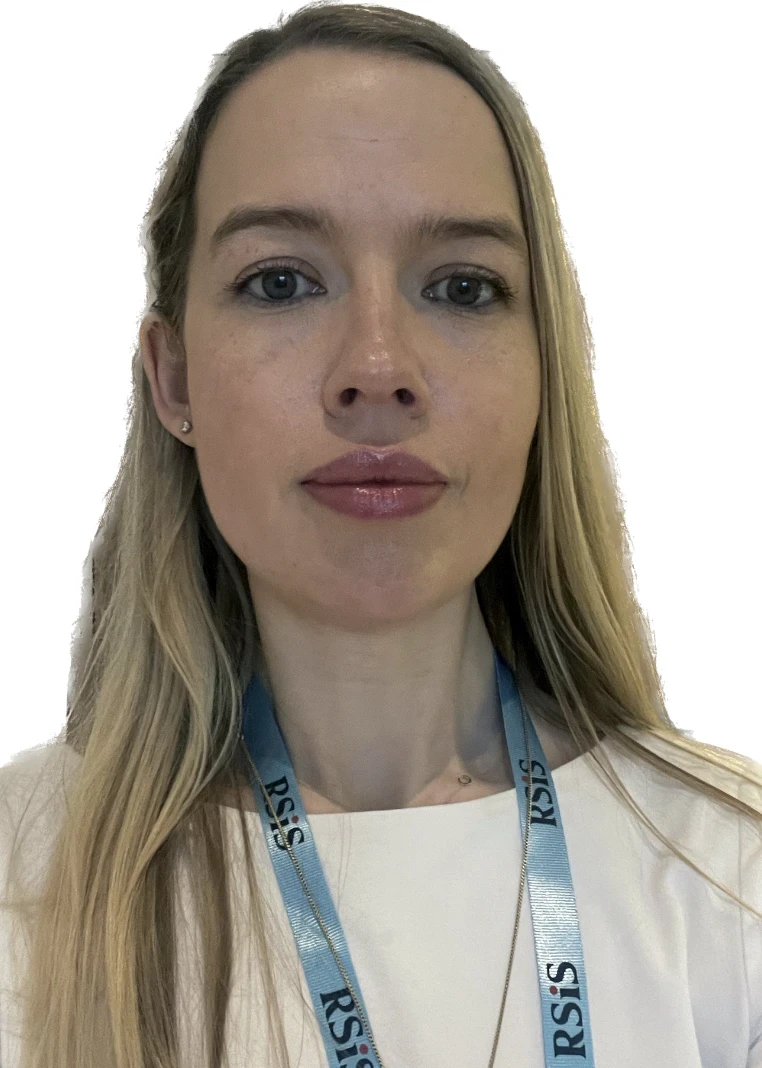 Stephanie Alice Baker is a Reader in Sociology at City, University of London. Her research examines influencer culture and how false and misleading narratives spread among health and wellness communities online. She has published several articles and books on these topics including Lifestyle Gurus (2020), Wellness Culture (2022) and Cults (2024).
Stephanie Alice Baker is a Reader in Sociology at City, University of London. Her research examines influencer culture and how false and misleading narratives spread among health and wellness communities online. She has published several articles and books on these topics including Lifestyle Gurus (2020), Wellness Culture (2022) and Cults (2024).
Dr Baker’s current research explores the role of new media technologies in amplifying false, misleading and harmful content online. In 2021, she was invited by the UK Parliament to provide oral and written evidence on influencer culture in relation to online radicalisation, terrorism and extremism. She continues to work with the government and policymakers in their efforts to reduce and respond to mis/disinformation.
Dr Baker has worked with organisations across the public and private sectors, such as the BBC, the Guardian, ITV, Flamingo, the Discovery Channel, Weber Shandwick, Tapestry Research, Sense Worldwide and TECNO mobile.
She is a guest speaker, together with public health experts from the World Health Organisation (WHO), on the University of Toronto's health policy module, 'Health Communication in the Age of Infodemics.'
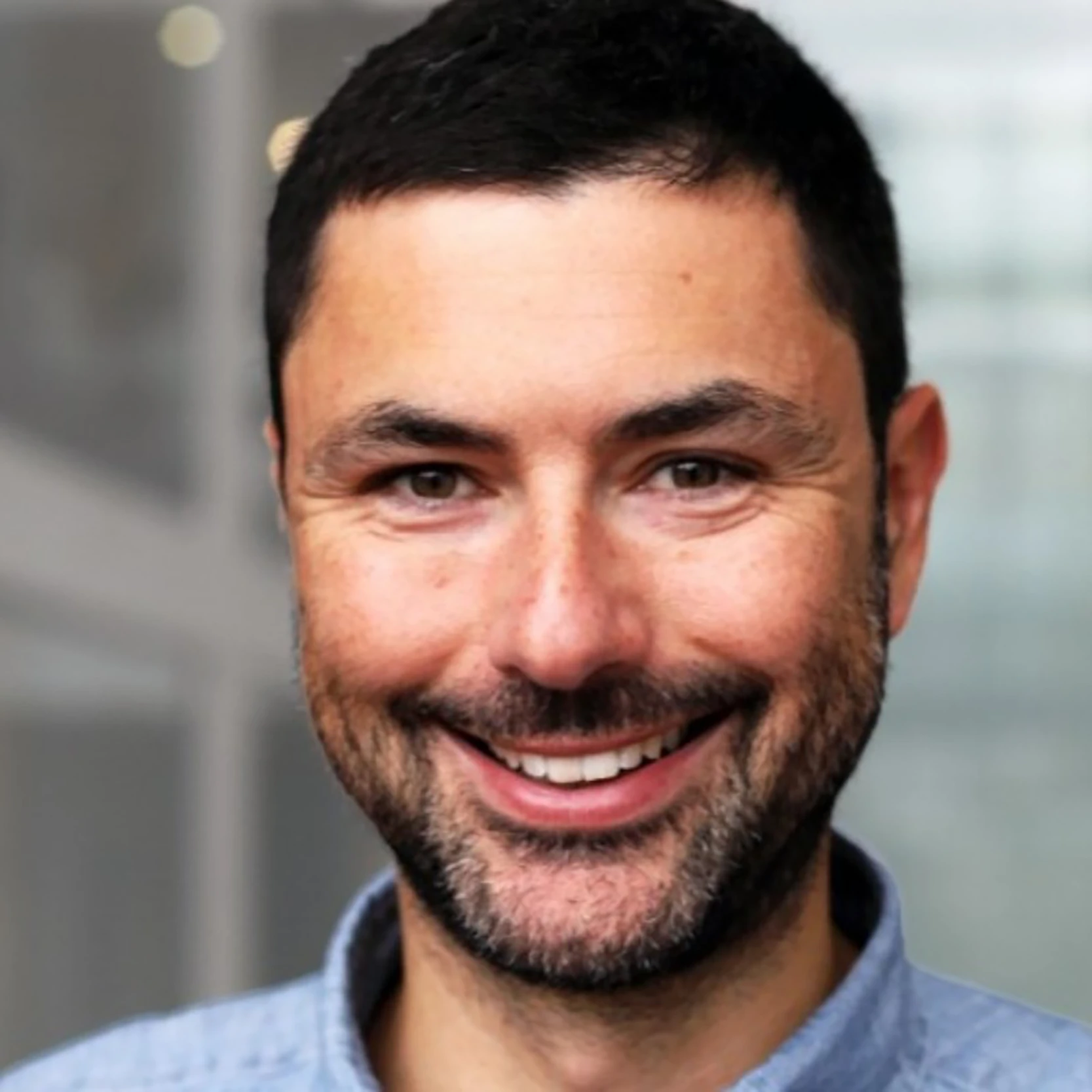 Andrea Baronchelli is a Professor of Complexity Science at City St George's, University of London and leads the Token Economy theme at The Alan Turing Institute. Additionally. He is also a Research Associate at the UCL Centre for Blockchain Technologies.
Andrea Baronchelli is a Professor of Complexity Science at City St George's, University of London and leads the Token Economy theme at The Alan Turing Institute. Additionally. He is also a Research Associate at the UCL Centre for Blockchain Technologies.
Andrea's research explores how people behave and organise themselves in decentralized socio-technical systems. To gain insights, he uses complex systems, network science, and machine learning to analyze large datasets, develops mathematical models, and conducts experiments with human subjects. His work contributes to understanding how people coordinate in social networks, interact with and shape blockchain technology, and how information spreads and creates polarization. Andrea has also extensively investigated the evolution of social norms, how we categorize the world, and what triggers tipping points in collective behavior. Moreover, he has explored human mobility and fundamental network science concepts like diffusion processes and the dynamics of time-varying networks.
Andrea has published in leading journals such as Nature, Science, PNAS, Nature Human Behaviour, Nature Climate Change, Nature Communications, Science Advances, and Physical Review Letters and has received support from various organizations, including UKRI, PayPal, ESRC, InnovateUK, and the UK Government.
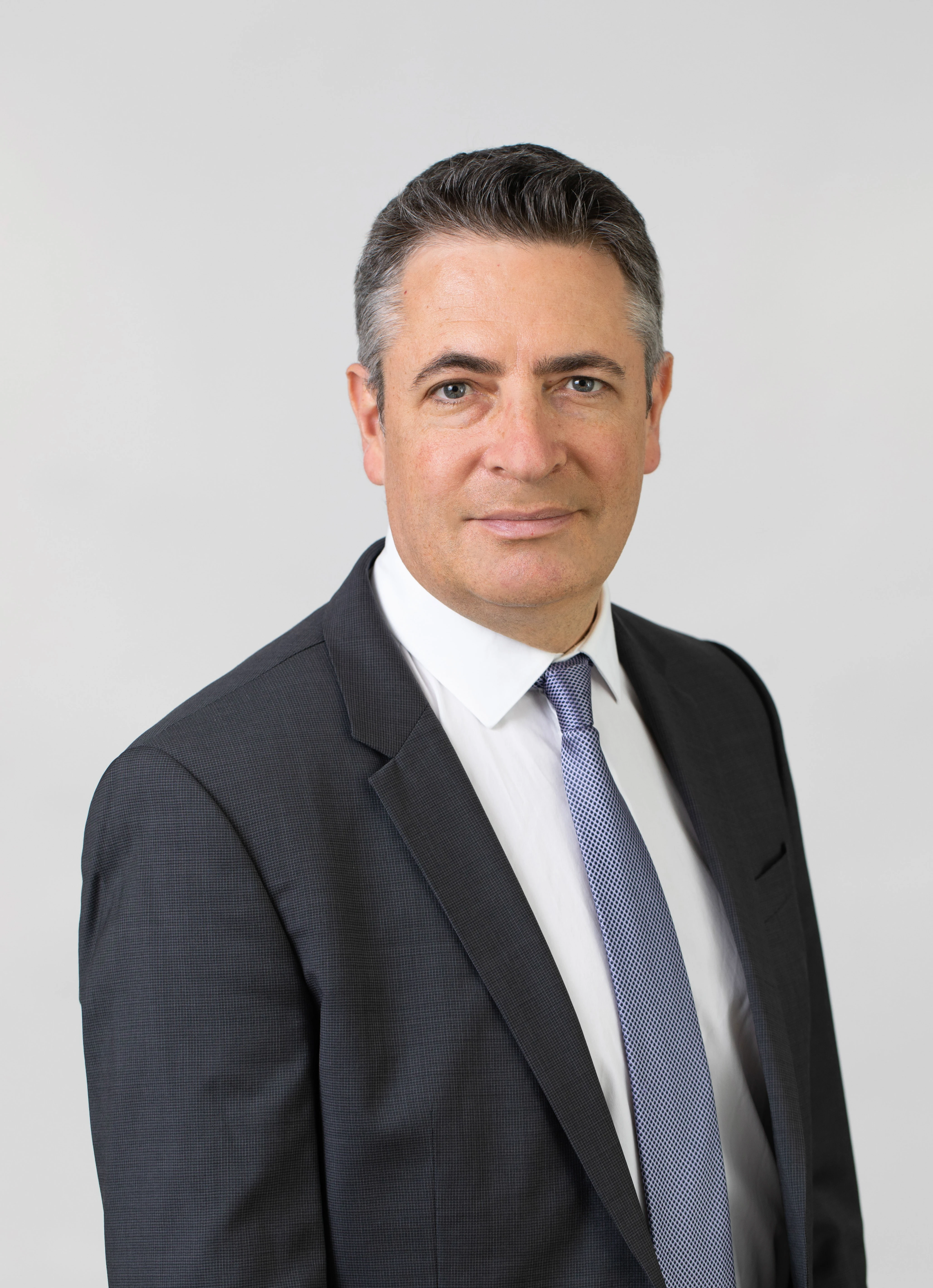 Elijah Behr is an international expert in the field of arrhythmias and is Professor in Cardiovascular Medicine at City St. George’s, University of London where he directs the Cardiovascular and Genomics Research Institute. He is a Consultant at St. George’s University Hospitals NHS Foundation Trust and Mayo Clinic Healthcare, London, where he leads nationally, and internationally reputed clinical services dedicated to patients with arrhythmias, and patients and their families with genetic risks for arrhythmia, cardiac arrest and sudden death. He has co-written multiple international guideline documents.
Elijah Behr is an international expert in the field of arrhythmias and is Professor in Cardiovascular Medicine at City St. George’s, University of London where he directs the Cardiovascular and Genomics Research Institute. He is a Consultant at St. George’s University Hospitals NHS Foundation Trust and Mayo Clinic Healthcare, London, where he leads nationally, and internationally reputed clinical services dedicated to patients with arrhythmias, and patients and their families with genetic risks for arrhythmia, cardiac arrest and sudden death. He has co-written multiple international guideline documents.
He is past president of the Association for Inherited Cardiac Conditions and the first chairperson of the European Cardiac Arrhythmia Genetics Group of EHRA. He is first chair of the Predisposition and Screening Genome England Clinical Interpretation Partnership and advises the NHS England Clinical Reference Groups for Cardiovascular and Genomics Services. Heleads the NHS England Coronial Sudden Unexpected Death Pilot.
He leads a research group with interests that include the genomics and prediction of sudden death risk; drug-induced arrhythmia; the Sudden Arrhythmic Death Syndrome (SADS) and Sudden Infant Death Syndrome (SIDS); channelopathies including long QT and Brugada syndromes; and arrhythmogenic cardiomyopathy. He has published over 300 articles in peer reviewed journals.
 Dr Enrico Bonadio teaches, researches and advises in the field of intellectual property (IP) law. He is currently Reader in Intellectual Property (IP) Law at City, University of London. A frequent visitor to many universities and research centres around the world, Enrico has research interests in several IP areas, including the protection of non-conventional forms of creativity.
Dr Enrico Bonadio teaches, researches and advises in the field of intellectual property (IP) law. He is currently Reader in Intellectual Property (IP) Law at City, University of London. A frequent visitor to many universities and research centres around the world, Enrico has research interests in several IP areas, including the protection of non-conventional forms of creativity.
He has attracted funds from a variety of institutions, including the European Commission, Australian Research Council, UK Research and Innovation, UK Economic and Social Research Council, and the UK Higher Education Innovation Funding.
Enrico works with various international organisations and governments on IP issues and regularly joins training and technical assistance missions organised by World Intellectual Property Organisation. He frequently appears in the media as IP expert, and has been in private practice since 1999, working as IP lawyer for top-tier international law firms.
Enrico is member of the Management Board at the Institute for Creativity and AI at City; CitAI (Artificial Intelligence Research Centre); Centre for Creativity enabled by AI, funded by UKRI’s Research England at City; the Law Society of England and Wales; ATRIP (International Association for the Advancement of Teaching and Research in Intellectual Property); BLACA (British Literary and Artistic Copyright Association).
 Mark Broom obtained a BA (Hons) in Mathematics from the University of Oxford in 1989, followed by an MSc in Statistics (1990) and a PhD in Mathematics (1993) at the University of Sheffield. Mark was appointed as Professor of Mathematics at City University in January 2010. He has supervised 18 PhD/DPhil students (8 of them funded by EPSRC or NERC). He has won 21 grants to support his work, including the current EU Innovative Training Network (ITN) grant number 955708, involving a consortium of 30 universities and companies in the EU and North America (March 2020-March 2024).
Mark Broom obtained a BA (Hons) in Mathematics from the University of Oxford in 1989, followed by an MSc in Statistics (1990) and a PhD in Mathematics (1993) at the University of Sheffield. Mark was appointed as Professor of Mathematics at City University in January 2010. He has supervised 18 PhD/DPhil students (8 of them funded by EPSRC or NERC). He has won 21 grants to support his work, including the current EU Innovative Training Network (ITN) grant number 955708, involving a consortium of 30 universities and companies in the EU and North America (March 2020-March 2024).
In 2017, he organised the major conference Mathematical Models in Ecology and Evolution at City. Mark is the founder of the Mathematical Models in Ecology and Evolution series of research conferences, on the Executive Board of the International Society of Dynamic Games and on the Board of the Society for Modeling and Theory in Population Biology. He is on the editorial boards of the Journal of Theoretical Biology, Dynamic Games and Applications, the Journal of Dynamics and Games, BioPhysMath and the Chapman and Hall Mathematical Biology book series.
His research interests are in Mathematical Biology, in particular Evolutionary Game Theory, and he has published over 150 papers. This includes both theoretical work on general games and the modelling of specific animal behaviours. Main research areas include multiplayer game theory, evolutionary processes in structured populations, evolutionary graph theory, models of food stealing (kleptoparasitism) and the signalling behaviour of prey species. In 2023, together with Jan Rychtář, he completed the second edition of the book Game-Theoretical Models in Biology published by Chapman and Hall.
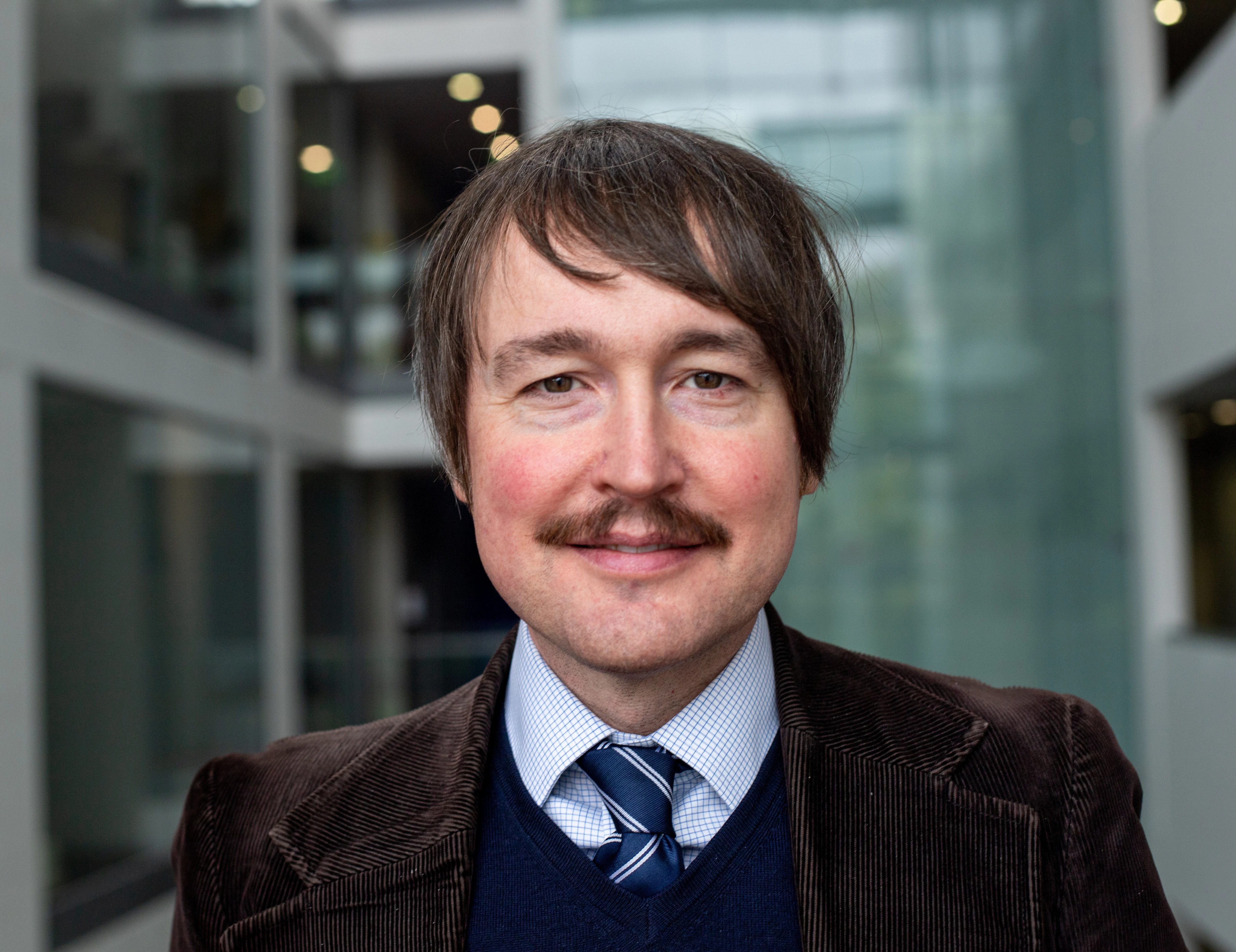 Mattias Frey is Professor and Head of Media, Culture and Creative Industries at City, University of London. He is a film and media industries scholar and the recipient of grants from the AHRC, Leverhulme and British Academy, among other funders.
Mattias Frey is Professor and Head of Media, Culture and Creative Industries at City, University of London. He is a film and media industries scholar and the recipient of grants from the AHRC, Leverhulme and British Academy, among other funders.
He is the author or editor of over fifty articles and chapters as well as eight books, including Netflix Recommends: Algorithms, Film Choice, and the History of Taste (University of California Press, 2021). This monograph, the winner of the 2023 BAFTSS (British Association of Film, Television and Screen Studies) Best Monograph Award, examines how video on demand services use automated computational processes (including machine learning, algorithms and AI) to market personalised selections of films and series.
He is currently working on a co-edited collection on Artificial Intelligence in Film and the Audiovisual.
 My research broadly seeks to inform how best to promote the quality of life of autistic and other neurodiverse people. Part of my work focuses on understanding learning and memory processes across the autism spectrum, with a view to informing strategies for fostering successful learning in e.g., school environments. Other parts of my work try to contribute to a better understanding of the mechanisms underlying common mental health difficulties in autism and the implications for effective mental health support.
My research broadly seeks to inform how best to promote the quality of life of autistic and other neurodiverse people. Part of my work focuses on understanding learning and memory processes across the autism spectrum, with a view to informing strategies for fostering successful learning in e.g., school environments. Other parts of my work try to contribute to a better understanding of the mechanisms underlying common mental health difficulties in autism and the implications for effective mental health support.
I work closely with school communities to find effective ways of translating new evidence into practice, and my work focusses increasingly on individuals with significant learning disabilities who have remained grossly underrepresented in research. In relation to this group, I am interested in learning more about how AI tools might be used to more effectively support autistic people who use minimal spoken language in communicating their needs and experiences. For example, how AI tools might be used to effectively adapt to the communication strengths and difficulties of individuals in order to provide effectively personalised scaffolds for supporting communication.
 Peter Garrard turned to medicine after a first degree in the humanities (classical languages, ancient history and philosophy). Later completed a PhD on language and semantics in dementia and in 2005 was among the first to demonstrate the application of computational linguistics to Alzheimer’s disease and other disorders. Since then has authored or co-authored more than 150 publications. Current active interests include the development of automated administration and human user decision support in clinical language assessment, using AI.
Peter Garrard turned to medicine after a first degree in the humanities (classical languages, ancient history and philosophy). Later completed a PhD on language and semantics in dementia and in 2005 was among the first to demonstrate the application of computational linguistics to Alzheimer’s disease and other disorders. Since then has authored or co-authored more than 150 publications. Current active interests include the development of automated administration and human user decision support in clinical language assessment, using AI.
Professor Garrard is an Associate Editor of Cortex and the Journal of Alzheimer's Disease. He is a trustee of the Daedalus Trust (a charity to promote research into organisational learning and ‘Hubris syndrome’ in politics and the workplace), and the Neuroscience Research Foundation.
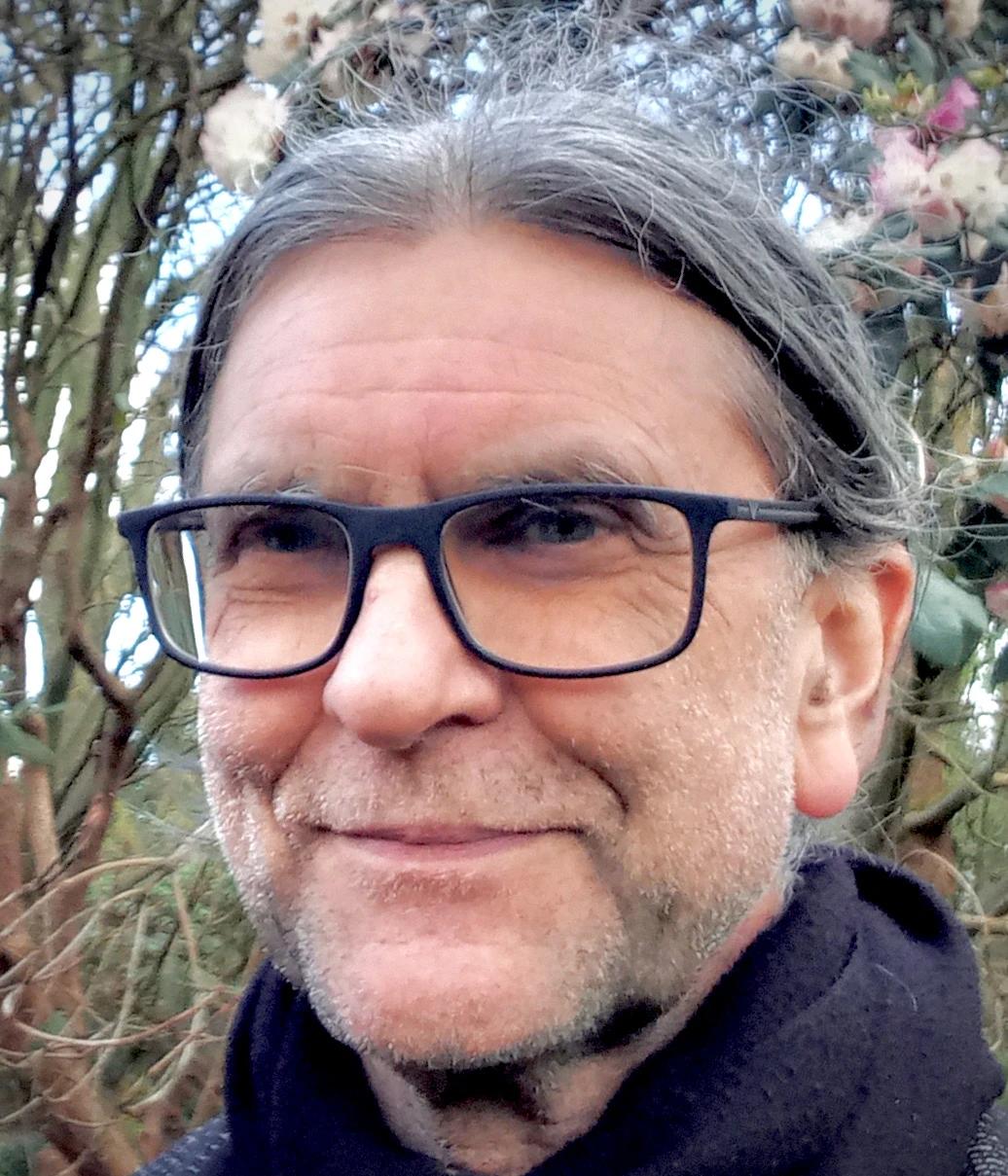 I am Director of the Neuroscience & Cell Biology Research Institute on the Tooting Campus of CStG’s and Professor of Magnetic Resonance Imaging (MRI). My research focus is developing automated analysis tools for multimodal MRI to support the diagnosis of brain tumours. I work with various MRI techniques, including perfusion and diffusion imaging, to capture structural and functional details of brain tissue, and use magnetic resonance spectroscopy (MRS) to gain biochemical insights.
I am Director of the Neuroscience & Cell Biology Research Institute on the Tooting Campus of CStG’s and Professor of Magnetic Resonance Imaging (MRI). My research focus is developing automated analysis tools for multimodal MRI to support the diagnosis of brain tumours. I work with various MRI techniques, including perfusion and diffusion imaging, to capture structural and functional details of brain tissue, and use magnetic resonance spectroscopy (MRS) to gain biochemical insights.
I am particularly interested in applying pattern recognition techniques to optimally combine data from multiple MRI methods. My goal with multimodal MRI is to create biomarkers that can aid in diagnosis, assess prognosis, and monitor treatment response. For glial brain tumours, I aim to develop software that more accurately delineates tumour boundaries, captures tissue heterogeneity, and indicates tumour aggressiveness.
I collaborate with clinicians at St George’s Hospital to apply advanced MRI acquisition and analysis methods across a wide range of diseases, including brain tumours, osteoarthritis, dementia, Tourette’s syndrome, cerebrovascular disease, chronic obstructive pulmonary disease, lupus, lymphoedema, and normal aging. MRI insights from these studies help us understand disease mechanisms and support the development of biomarkers for clinical use, ultimately improving patient management.
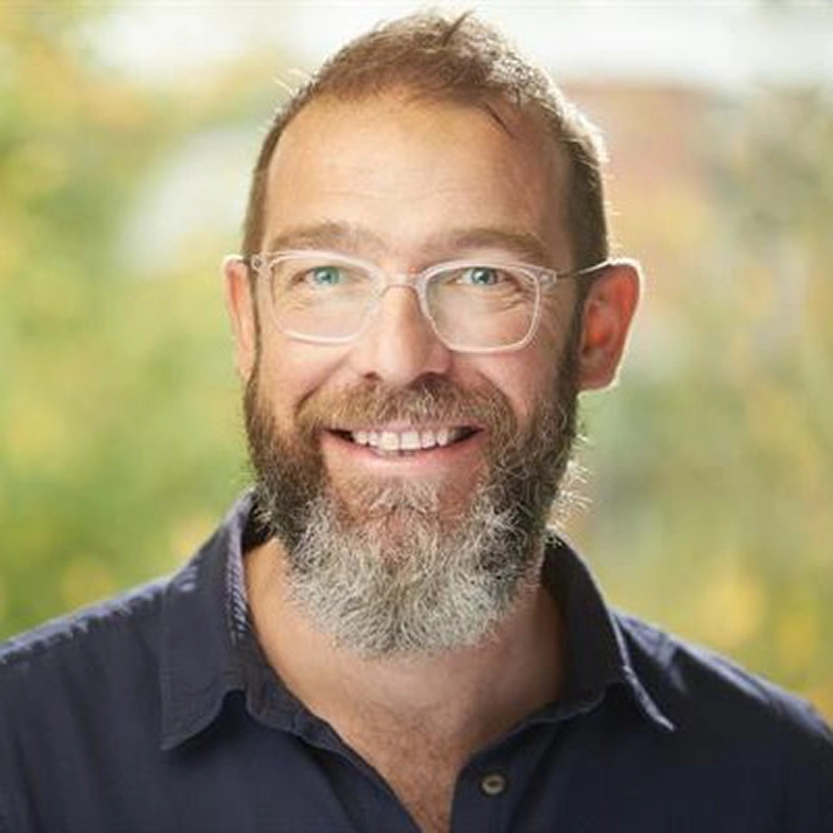 I am a lecturer in the Department of Psychology and Neuroscience. I have a diverse background, having transitioned to Psychology and Cognitive Science after completing a first degree in Computer Engineering and Informatics, and working in secondary education.
I am a lecturer in the Department of Psychology and Neuroscience. I have a diverse background, having transitioned to Psychology and Cognitive Science after completing a first degree in Computer Engineering and Informatics, and working in secondary education.
My research focuses on understanding individual differences and the interaction between “nature” and “nurture,” using a combination of computational and psychological methods. One strand of my work involves using artificial neural networks to model cognitive development—particularly to simulate psycholinguistic phenomena in developmental language disorder, autism, as well as bilingualism, and cross-linguistic differences. Another strand of my research explores the unique ways Autistic people perceive the world, using Bayesian and other computational modelling frameworks.
More recently, I have been applying corpus and computational linguistics methods to examine discourse around autism and neurodiversity. This work aims to promote more respectful reporting and representation of Autistic people in the press, media, as well as in NLP and AI resources.
.Since 2024, I have served as an Associate Editor for Research in Autism.
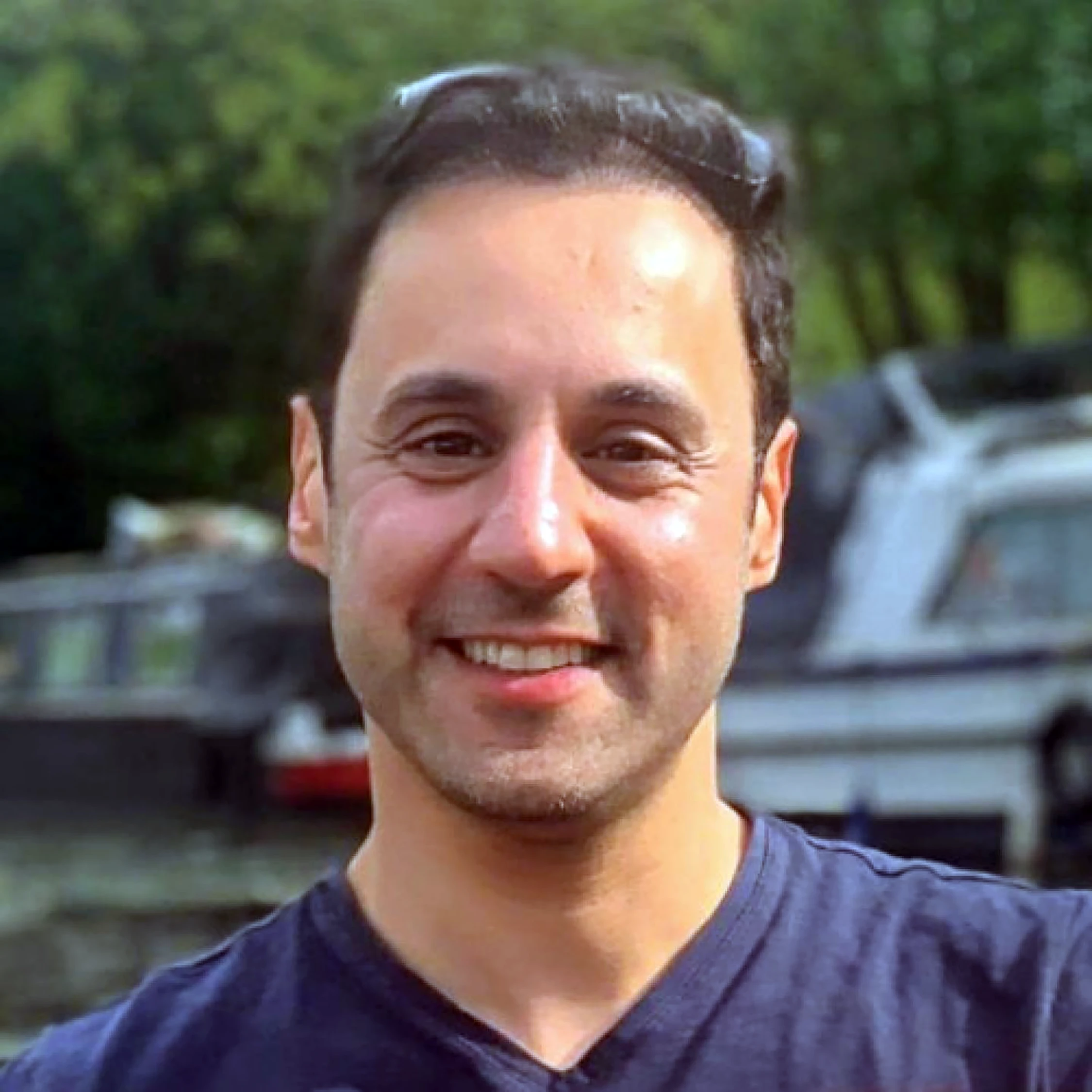 Dr. Keramati is a multi-disciplinary scientist with his background in Computer Engineering (BSc), Economics (MSc), and Mathematical Neuroscience (PhD).
Dr. Keramati is a multi-disciplinary scientist with his background in Computer Engineering (BSc), Economics (MSc), and Mathematical Neuroscience (PhD).
He held two postdoctoral positions in Computational Neuroscience with Prof. Peter Dayan at the Gatsby Computational Neuroscience Unit,(UCL) and Computational Psychiatry (UCL) with Prof. Ray Dolan at the Max Planck Center for Computational Psychiatry (UCL). He has been a lecturer at the Department of Psychology at City since 2018. His research interests include topics such as Neuroeconomics and Behavioral Economics, Associative Learning, Planning, and Decision Making, Artificial Intelligence and Machine Learning Techniquesand Drug and Food Addiction.
More broadly, he is keep in applying machine learning and artificial intelligence methods to to understanding human and social decision making processes by using a mixture of theoretical/computational and experimental techniques.
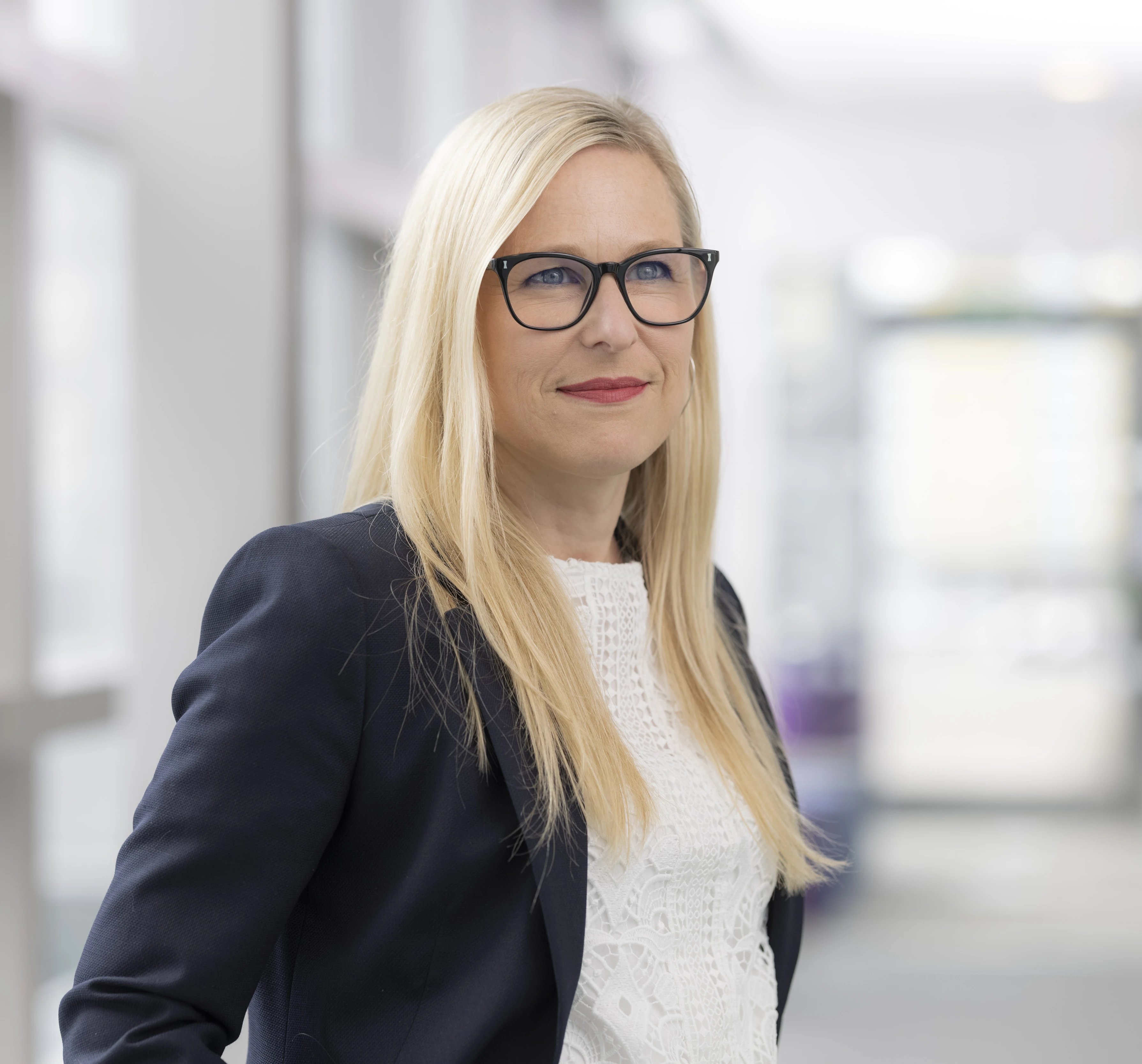 Dr Simone Krummaker is the Associate Dean for the MSc Programmes and an Associate Professor of Insurance at Bayes Business School. She holds a doctoral degree (Dr. rer. pol.) and a German University degree (Diplom Ökonom) in Business and Economics from the Leibniz University of Hannover and is a Fellow and the Institute for Trade and Innovation at Offenburg University.
Dr Simone Krummaker is the Associate Dean for the MSc Programmes and an Associate Professor of Insurance at Bayes Business School. She holds a doctoral degree (Dr. rer. pol.) and a German University degree (Diplom Ökonom) in Business and Economics from the Leibniz University of Hannover and is a Fellow and the Institute for Trade and Innovation at Offenburg University.
Before joining academia, Simone worked for more than 10 years in the insurance industry in several positions such as underwriting and controlling. She is also a certified insurance professional (Versicherungskauffrau, Chamber of Industry and Commerce). Simone joined the Centre for Risk and Insurance at Leibniz University of Hannover as a Lecturer and Researcher in insurance in 2003 and also led several projects and successful grant applications there. In 2012 Simone moved to London to help starting up University of East Anglia’s London campus before joining Westminster Business School as a Senior Lecturer in Finance. In September 2018 Simone joined Bayes’ Faculty of Actuarial Science and Insurance.
Simone’s research interests are particularly in the area of organisational insurance demand, ESG in insurance as well as export credit insurance. She also provides consulting and training in her area of expertise.
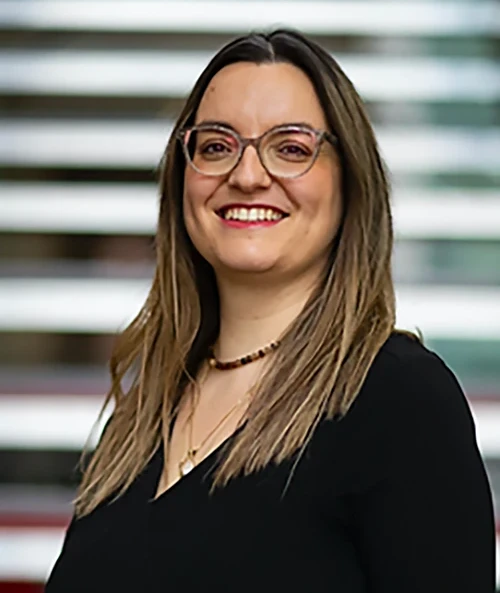 Dr Christina Malamateniou is a diagnostic radiograoher and and associate Professor in technology enabled patient care in Radiography at City St George's. She is the Director of the CRRAG Research group, which specialises in AI, new technologies, patient safety and patient centred care in Radiography.
Dr Christina Malamateniou is a diagnostic radiograoher and and associate Professor in technology enabled patient care in Radiography at City St George's. She is the Director of the CRRAG Research group, which specialises in AI, new technologies, patient safety and patient centred care in Radiography.
Christina has held many leadership positions in the UK and globally. She was the Chair for the AI working and advisory groups and the Society and College of Radiographers, that first published AI guidance for medical imaging professionals, and is the current Chair of research at the European body, the EFRS.
She has developed and runs the AI introduction to Radiography module at City StGeorge's since 2020, the first AI module for Radiographers globally. She has published extensively and has contributed to research projects as PI and Co-PI of £3.5 million.
For her contributions to Radiography she was awarded the extraordinary woman award from City, University of London in 2023.
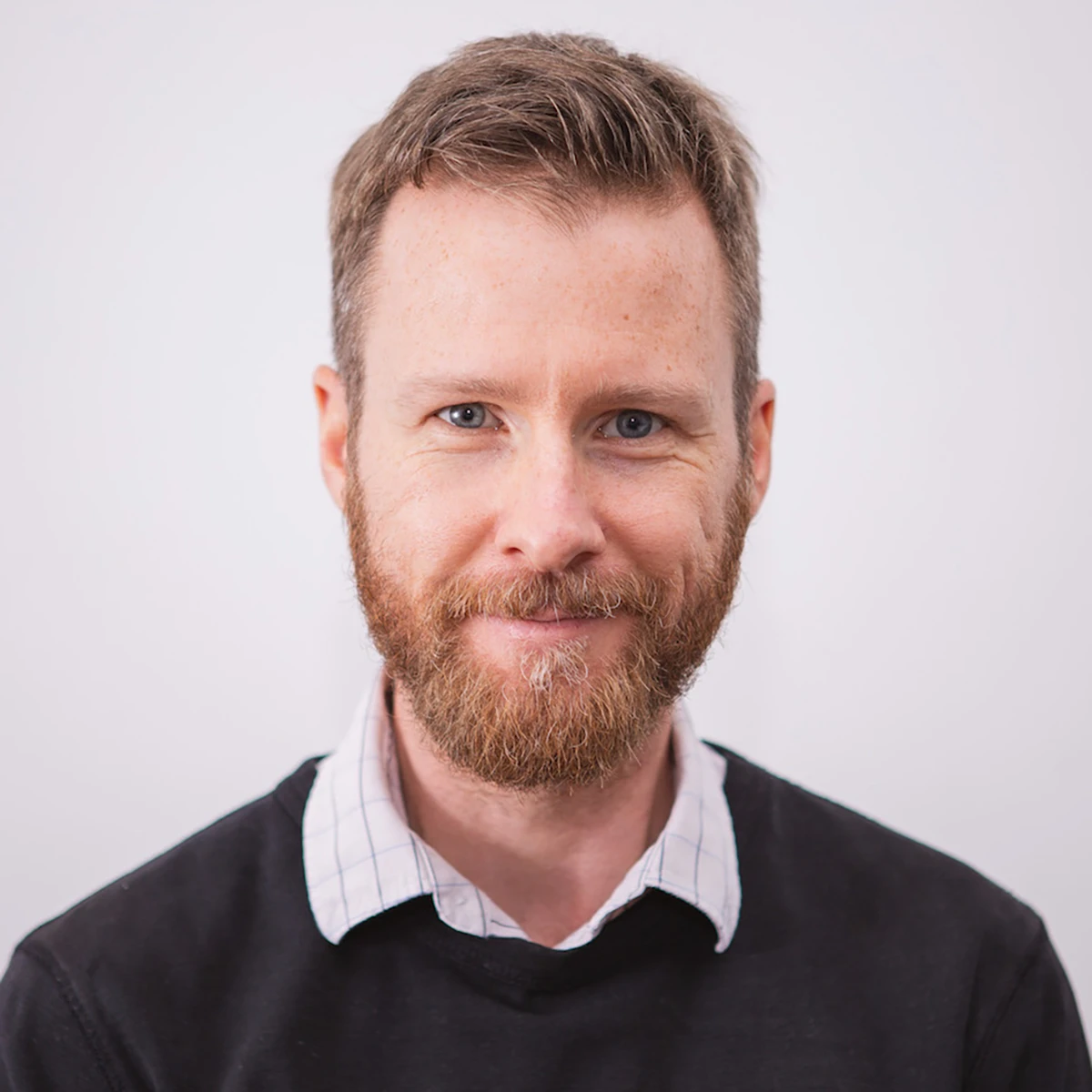 Rob Noble is A Senior Lecturer in applied mathematics at City St George’s, University of London. He has a first degree in mathematics and a PhD in mathematical biology from the University of Oxford. He uses data-driven mathematical and computational models to investigate the evolution and ecology of cancer, in collaboration with experimental biologists and clinicians.
Rob Noble is A Senior Lecturer in applied mathematics at City St George’s, University of London. He has a first degree in mathematics and a PhD in mathematical biology from the University of Oxford. He uses data-driven mathematical and computational models to investigate the evolution and ecology of cancer, in collaboration with experimental biologists and clinicians.
Rob leads a mathematical oncology group at City St George’s, University of London focussed on four research themes. This research pursues a systematic understanding of somatic evolution. It aims to develop methods for patient-specific tumour progression forecasting, devise treatment strategies that optimally manipulate tumour evolutionary dynamics, and use life history theory and population data to disentangle contributions to cancer risk.
A common thread in his research is investigating how aspects of ecology shape evolutionary dynamics.
The methods he uses to pursue these aims include agent-based models, analysis of dynamical systems, stochastic processes, and Bayesian data analysis.
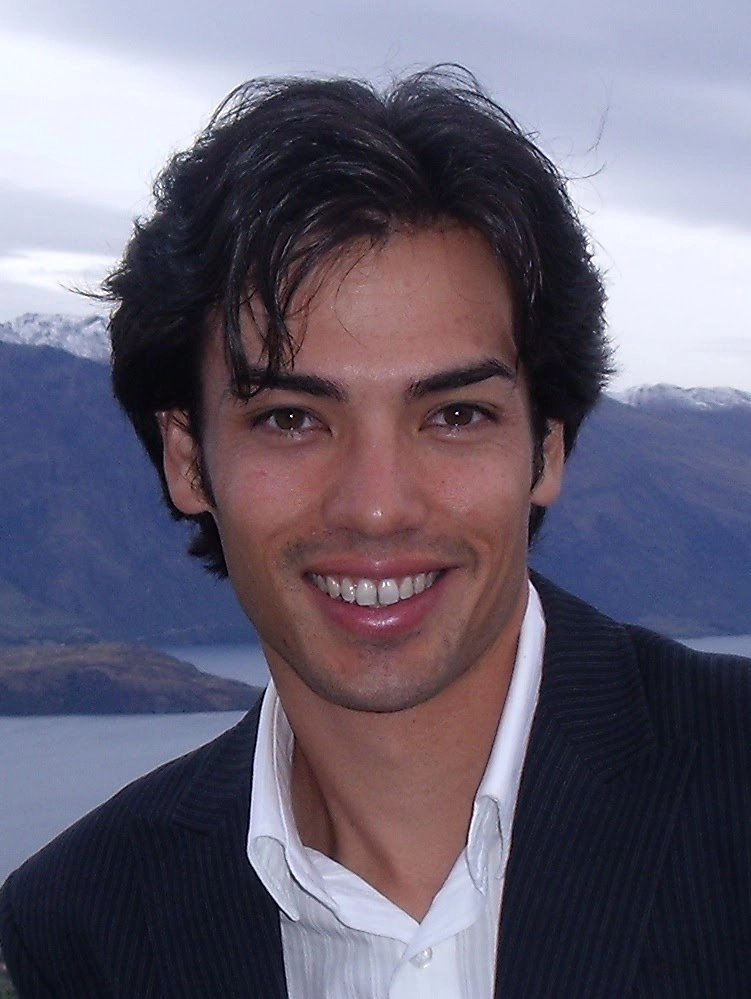 Dr Neil Saunders is a Senior Lecturer in mathematics working in the field of geometric representation theory, a field at the interface of abstract algebra, geometry and combinatorics.
Dr Neil Saunders is a Senior Lecturer in mathematics working in the field of geometric representation theory, a field at the interface of abstract algebra, geometry and combinatorics.
Recently Neil has been working on various outreach projects that aim to demystify AI for general audiences, explaining what learning means in the context of mathematical models, and the differences between human understanding and machine understanding. Some of this has been in collaboration with artists and colleagues in the humanities. As well as publishing academic papers, Neil has written for The Conversation and has been interviewed on the BBC & LBC radio talking about developments in AI.
Neil completed his PhD at the University of Sydney and held postdoctoral positions at the University of Bristol, the École Polytechnique Fédérale de Lausanne (EPFL) and City, University of London before starting as a Senior Lecturer in January 2024.
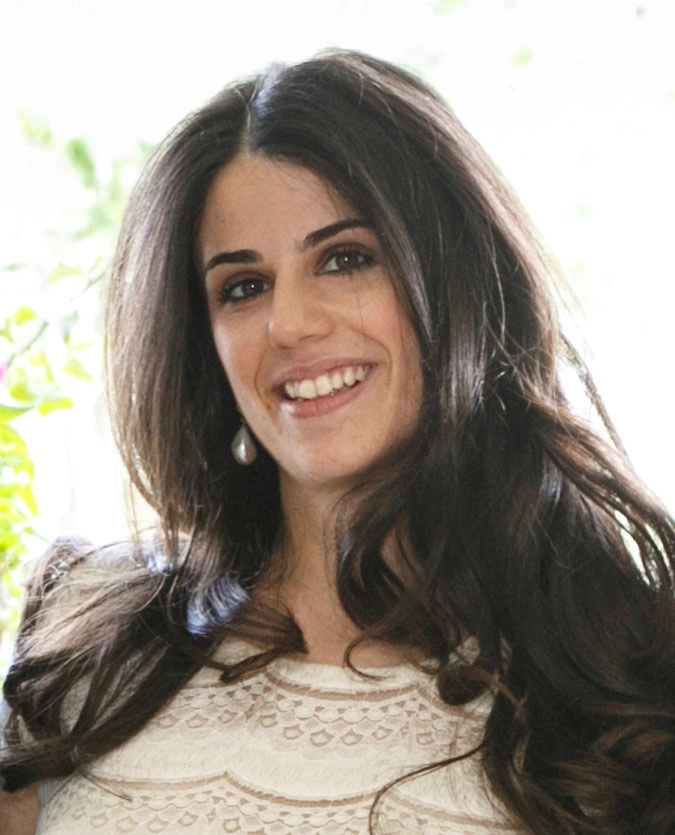 Dr. Dimitra Apostolopoulou is an Honorary Visiting Fellow in the Department of Computer Science at City St George’s, University of London, a Research Fellow of the Electricity Research programme at the Oxford Institute for Energy Studies (OIES) and a Lecturer at Christ Church College, University of Oxford. Before joining OIES, Dimitra was a Lecturer at the Department of Engineering at City, University of London. In this role, she contributed significantly to both academic instruction and research activities.
Dr. Dimitra Apostolopoulou is an Honorary Visiting Fellow in the Department of Computer Science at City St George’s, University of London, a Research Fellow of the Electricity Research programme at the Oxford Institute for Energy Studies (OIES) and a Lecturer at Christ Church College, University of Oxford. Before joining OIES, Dimitra was a Lecturer at the Department of Engineering at City, University of London. In this role, she contributed significantly to both academic instruction and research activities.
Prior to her tenure at City, Dimitra was an Oxford Martin Fellow at the University of Oxford. Her diverse experience extends to the industry as well; she previously worked at the Smart Grid & Technology Department at Commonwealth Edison (ComEd) in Chicago, Illinois—a unit of Exelon Corp. that serves approximately 3.8 million customers. Dimitra earned her Ph.D. and M.S. degrees in Electrical and Computer Engineering from the University of Illinois at Urbana-Champaign, in 2014 and 2011 respectively. Her research interests lie at the intersection of power and energy systems, economics, and energy policy.
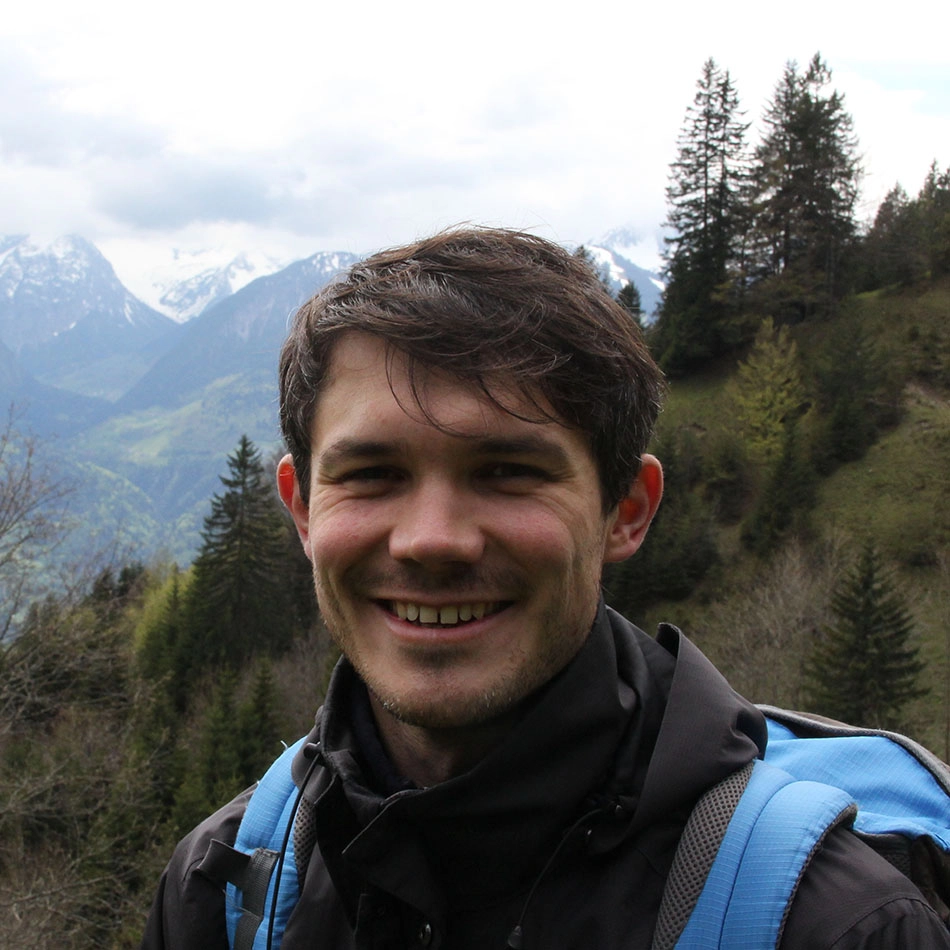 Johann's research focus lies on the mathematical foundations of learning dynamics across system levels, particularly in artificial neural networks, and of evolutionary dynamics, addressing the question when adaptations on one level result in adaptations on higher levels in networks of interacting agents. He approaches this questions from the perspectives of evolutionary game theory, reinforcement learning, dynamic systems theory and stochastic processes, in order to obtain convergence and optimality proofs for the dynamics, particularly multi-population replicator-mutator dynamics.
Johann's research focus lies on the mathematical foundations of learning dynamics across system levels, particularly in artificial neural networks, and of evolutionary dynamics, addressing the question when adaptations on one level result in adaptations on higher levels in networks of interacting agents. He approaches this questions from the perspectives of evolutionary game theory, reinforcement learning, dynamic systems theory and stochastic processes, in order to obtain convergence and optimality proofs for the dynamics, particularly multi-population replicator-mutator dynamics.
Currently, Johann is a postdoc at the Computational Modelling of Intelligent Systems group at TU Darmstadt and an honorary visiting fellow at City St George's, after having worked as a data scientist in industry. He completed his PhD in mathematics at City with Mark Broom and Eduardo Alonso as supervisors, after obtaining a Diplom in mathematics from the University of Konstanz, Germany, and a BA in economics from the University of St. Gallen, Switzerland.
More broadly, Johann is also interested in the fundamentals of mathematics (mathematical logic, formal systems and languages, computability), the philosophy of mathematics, the philosophy of mind and of language, and economics.
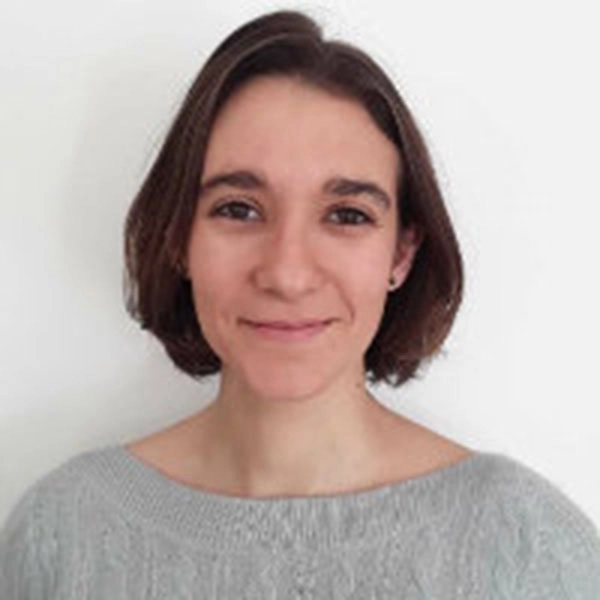 I am an associate professor at the University of East Anglia, and member of CitAI. Prior to this, I was a senior lecturer at City and had the luck to work with amazing researchers. I did my PhD at the University Paris VII under the supervision of Thomas Colcombet and Jean-Eric Pin, and spent a few years as a post-doctoral research fellow in Aix-Marseille University (with Pierre-Alain Reynier and Jean-Marc Talbot), ENS Lyon (with Colin Riba), University of Warsaw (with Mikolaj Bojanczyk) and the University of Warwick (with Marcin Jurdzinski and Ranko Lazic).
I am an associate professor at the University of East Anglia, and member of CitAI. Prior to this, I was a senior lecturer at City and had the luck to work with amazing researchers. I did my PhD at the University Paris VII under the supervision of Thomas Colcombet and Jean-Eric Pin, and spent a few years as a post-doctoral research fellow in Aix-Marseille University (with Pierre-Alain Reynier and Jean-Marc Talbot), ENS Lyon (with Colin Riba), University of Warsaw (with Mikolaj Bojanczyk) and the University of Warwick (with Marcin Jurdzinski and Ranko Lazic).
I am studying mathematical abstractions for verification problems, such as automata, games and logic formalisms. This way, I try to understand the limitations of computational models, how powerful they are, how fast …
I have studied more precisely optimization models (max-plus automata and tropical algebra), transducers and games (parity and mean-payoff) for example.
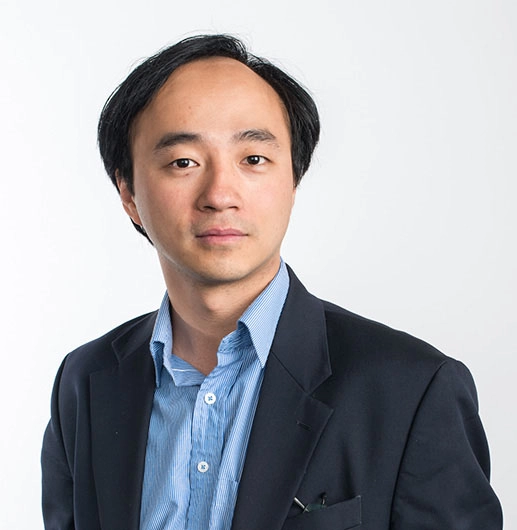 Professor Yang-Hui He is a mathematical physicist working on the interface between geometry, number theory and quantum field theory/string theory. Recently, he helped introduce machine-learning into the field of pure mathematics by using AI to help uncover new patterns and raise new conjectures (cf. interview by Science [Vol 365, July, 2019] and by New Scientist [Dec 9 Issue, 2019]).
Professor Yang-Hui He is a mathematical physicist working on the interface between geometry, number theory and quantum field theory/string theory. Recently, he helped introduce machine-learning into the field of pure mathematics by using AI to help uncover new patterns and raise new conjectures (cf. interview by Science [Vol 365, July, 2019] and by New Scientist [Dec 9 Issue, 2019]).
Yang studied at Princeton University, where he received his Bachelor of Arts in Physics, with a Certificate in Applied Mathematics and a Certificate in Engineering, Summa cum Laude (Highest Honours, Phi-Beta-Kappa). He then obtained a Certificate in Advanced Mathematics (Tripos) at the University of Cambridge, with Distinction. He went on to receive his PhD in theoretical and mathematical physics from MIT. Yang continued with postdoctoral work in the University of Pennsylvania before joining University of Oxford as the FitzJames Fellow in Mathematics and then the UK STFC Advanced Fellow in theoretical physics. Yang joined City in 2010 as Reader.
He is currently Fellow of The London Institute for Mathematical Sciences. He is the Chang-Jiang Chair Professor at NanKai University, China and jointly remains a Tutor and Lecturer at Merton College, Oxford University where he taught since 2005
 Jonathan is a senior research scientist at Equideum Health.
He currently leads the R/&D arm of Equideum, where the team focuses on privacy-preserving machine learning and decentralisation. Jonathan is exploring the potential of bringing together techniques such as Collaborative Learning and Blockchains to build a new generation of healthcare systems. He has grown a strong expertise in Secure Computing (Trusted Execution Environments - TEEs, FHE, …), Federated Learning and Verifiable Computing (TEEs, Zero-Knowledge Proofs, …) to enhance machine learning deployments with these Privacy Enhancing Technologies.
Jonathan is a senior research scientist at Equideum Health.
He currently leads the R/&D arm of Equideum, where the team focuses on privacy-preserving machine learning and decentralisation. Jonathan is exploring the potential of bringing together techniques such as Collaborative Learning and Blockchains to build a new generation of healthcare systems. He has grown a strong expertise in Secure Computing (Trusted Execution Environments - TEEs, FHE, …), Federated Learning and Verifiable Computing (TEEs, Zero-Knowledge Proofs, …) to enhance machine learning deployments with these Privacy Enhancing Technologies.
Jonathan is also a research fellow at Imperial College London (BioMedIA) and City, University of London (CitAI) where he co-supervises MEng, MSc and PhD students on the topics Privacy-Preserving Machine Learning and Federated Learning.
 Christos Tzelepis is a Senior Research Scientist at Samsung AI Center, Cambridge. He is also an Honorary member of CitAI. Prior to that, he was a Lecturer in Computer Science at City, University of London and was a postdoctoral researcher at Queen Mary University of London working with Prof. Ioannis (Yiannis) Patras and Dr. Georgios (Yorgos) Tzimiropoulos. I received the Diploma degree in Electrical and Computer Engineering from Aristotle University of Thessaloniki, Greece, and the Ph.D. degree in Machine Learning and Computer Vision from Queen Mary University of London.
Christos Tzelepis is a Senior Research Scientist at Samsung AI Center, Cambridge. He is also an Honorary member of CitAI. Prior to that, he was a Lecturer in Computer Science at City, University of London and was a postdoctoral researcher at Queen Mary University of London working with Prof. Ioannis (Yiannis) Patras and Dr. Georgios (Yorgos) Tzimiropoulos. I received the Diploma degree in Electrical and Computer Engineering from Aristotle University of Thessaloniki, Greece, and the Ph.D. degree in Machine Learning and Computer Vision from Queen Mary University of London.
His research interests lie in the areas of Generative AI, Vision-Language, and learning under uncertainty. Specifically, my current focus is in the conjunction between generative learning (using GANs and Diffusion Models) and Vision-Language models (especially LLMs). Christos is particularly interested in combining the generative and discriminative learning paradigms leveraging recent powerful Vision-Language models
He has published in the most authoritative international journals (IEEE TPAMI, IJCV) and conferences (CVPR, ICCV, ICLR) in the field.